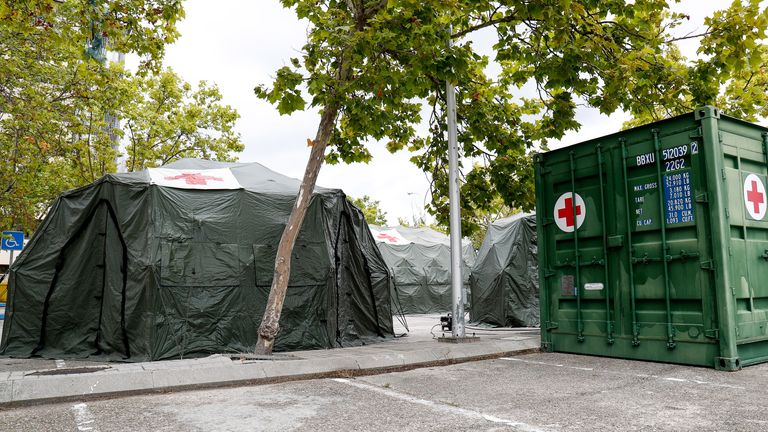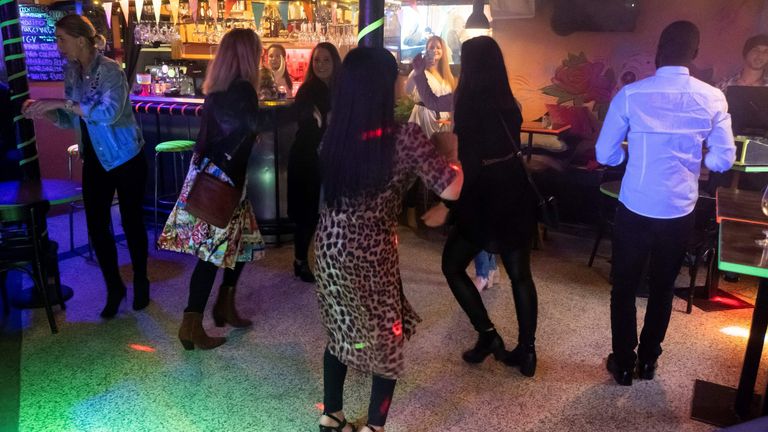Several countries across Europe have announced new coronavirus restrictions in some of their largest cities after recent surges in infections.
Spain, Greece, Denmark and France imposed further measures in virus hotspots, while health authorities in Italy have warned the average age of coronavirus patients is creeping up – risking more hospital admissions and deaths.
Infections have been climbing steadily across most of Europe over the last two months, with more than half of European countries seeing an increase of over 10% in the past two weeks.
On Friday, Madrid residents were told they will need a reason to leave their neighbourhoods, parks will be closed and shops and restaurants will have to work at half capacity.
Cases have continued to rise in the Spanish capital, despite curbs on nightlife and limiting group interactions to a maximum of 10 people.
Spain has the highest number of new coronavirus infections in Europe and Madrid’s rate of transmission is more than double the national average.
The country recorded 239 coronavirus-related deaths on Thursday, the highest single-day toll since cases began to rise again at the start of July.
In France, which has also seen a recent spike in infections, further restrictions have been introduced in the southern city of Nice.
Gatherings of more than 10 people have been banned in public spaces and bars are having their opening hours restricted.
More than 13,200 new cases were registered on Friday, France’s highest daily count since the start of the pandemic.
Greece is introducing tougher restrictions in the greater Athens region, while also stepping up testing and creating quarantine hotels.
From 21 September until 4 October, gatherings of more than nine people will be banned in the capital, with the exception of restaurants, bars and coffee shops.
Some 339 new infections were reported in Greece on Friday, with almost half of these in the greater Athens area.
In total, there have been 14,000 confirmed cases and 327 deaths nationwide.
Denmark has lowered the limit on public gatherings to 50 people from 100 and ordered bars and restaurants to close early, after the country recorded 454 new infections on Friday.
Meanwhile, Iceland has ordered entertainment venues and pubs in the capital area to close for four days from 18 September.
Italy, which was once the epicentre of the virus in Europe, is not experiencing the huge increases in infections seen in some of its neighbouring countries.
But the health institute has warned that young people are starting to infect older family members in home settings, with the average age of positive cases last week at 41 versus the low 30s in August.
Earlier this week, the World Health Organisation (WHO) said the number of COVID-19 cases in Europe are now exceeding those reported in March.
The WHO’s regional director for Europe, Dr Hans Kluge, told a news briefing: “The September case numbers… should serve as a wake-up call for all of us.
“Although these numbers reflect more comprehensive testing, it also shows alarming rates of transmission across the region.”


